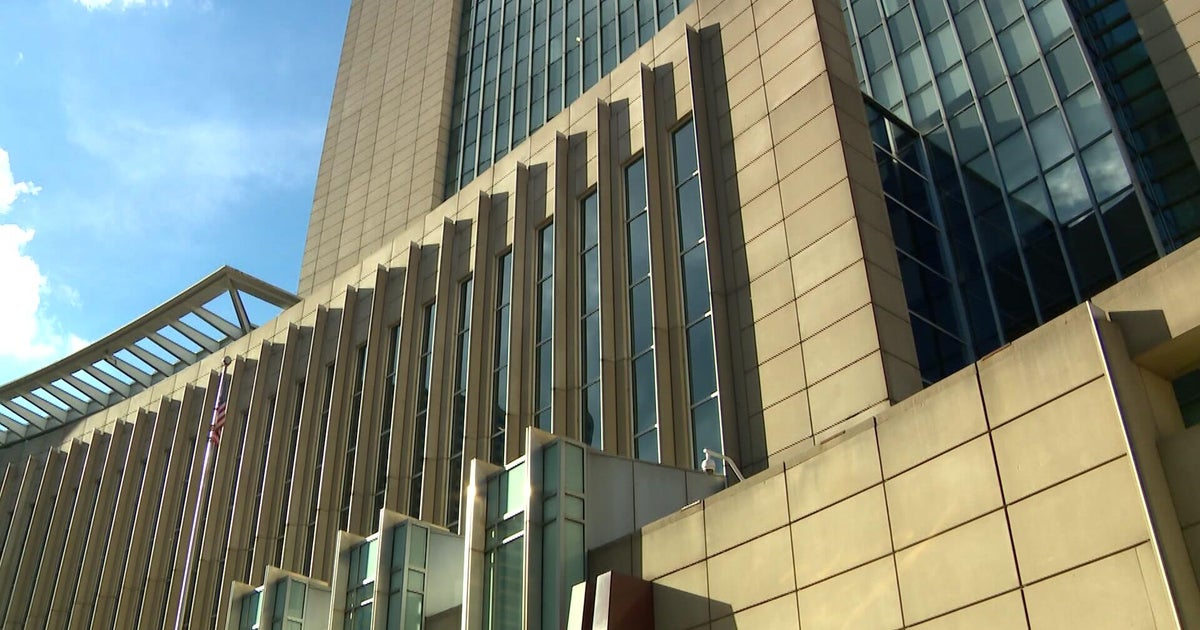Biden meets with Democratic lawmakers amid divisions over economic agenda
Washington — President Biden met with two groups of House and Senate Democrats at the White House on Tuesday as his administration works to bridge the gap between the moderate and progressive wings of the party over components of his sweeping plan to expand the social safety net.
Mr. Biden, joined by Vice President Kamala Harris and Treasury Secretary Janet Yellen, first sat down with nine House progressives to discuss his legislative agenda, according to the White House. Lawmakers who attended include Representatives Katherine Clark of Massachusetts, Ro Khanna of California and Pramila Jayapal of Washington, head of the Congressional Progressive Caucus, among others.
The trio then gathered with a group of moderate lawmakers from the House and Senate later Tuesday afternoon, the White House said. Among the eight attendees for the later meeting were Senators Jon Tester of Montana and Mark Warner of Virginia, and Congressman Josh Gottheimer of New Jersey, who co-chairs the bipartisan Problem Solvers Caucus.
Separately, Mr. Biden met earlier in the day with Senators Kyrsten Sinema of Arizona and Joe Manchin of West Virginia, moderate Democrats whose support for his social policy package is key, White House press secretary Jen Psaki said during the White House press briefing.
Progressive Democrats are advocating for a wide-ranging social policy package that includes plans to expand Medicare, combat climate change and provide free community college and universal pre-K, among other priorities. But they've run into opposition from moderate Democrats, who have pushed back on the legislation's original $3.5 trillion price tag and want it to be trimmed.
The president's meetings are the latest in a series of efforts to broker an agreement between moderates and progressives over the size and scope of his social spending package, and Psaki told reporters Monday they reflect an "urgency to move things forward."
Mr. Biden has already met this week with Jayapal at the White House and spoke with other Democrats in both chambers on the phone Monday afternoon. He is poised to travel to Scranton, Pennsylvania, on Wednesday to pitch his domestic policy plans to the American people.
But the impasse among Democrats over the details of the sweeping social spending package has threatened to derail Mr. Biden's economic agenda, a pillar of which includes a more targeted $1 trillion bipartisan infrastructure bill that has already cleared the Senate.
Progressives, led by Jayapal, have halted advancement of the physical infrastructure plan and pledged to withhold support unless the broader package moves through Congress first. The $1 trillion infrastructure plan, though, includes funding for highway programs that are due to expire at the end of October, adding another layer of urgency for Congress to send the bill to Mr. Biden's desk.
The president has stepped in to help break the logjam between the competing factions of the Democratic conference and told progressives earlier this month they need to settle on a range of $1.9 trillion and $2.2 trillion for the social safety net package.
But still unsolved are what programs Democrats can agree to eliminate or scale back, as well as what the final price tag will be. Because Democrats hold slim margins in the House and Senate, any package must receive the backing of Democratic lawmakers across the ideological spectrum, and there is no room for error in the upper chamber, where each party controls 50 seats and Harris casts tie-breaking votes.
The party breakdown in the Senate has made Manchin and Sinema key figures in negotiations over Mr. Biden's domestic policy agenda, as their support is crucial for the social spending measure to pass. The two, however, have objected to the package's $3.5 trillion price tag, and Manchin has also advocated for means-testing and work requirements for some programs.
Still, Senate Majority Leader Chuck Schumer said there is "universal agreement" among Senate Democrats to reach an agreement on the framework for the wide-ranging package this week.
"The desire to get it done is strong," he told reporters.
The talks are picking back up with the return of the House and Senate to Washington on Monday following a week-long recess. But the tensions between progressive and moderate Democrats extended outside the Beltway during lawmakers' break.
Senator Bernie Sanders of Vermont, chair of the Senate Budget Committee, published an op-ed in the Charleston Gazette-Mail on Friday advocating for the $3.5 trillion plan and calling out Manchin for his opposition to its scope.
"This is a pivotal moment in modern American history," Sanders wrote. "We now have a historic opportunity to support the working families of West Virginia, Vermont and the entire country and create policy which works for all, not just the few."
Manchin, meanwhile, hit back at Sanders in a statement, saying the Vermont senator's answer to strained supply chains, rising prices and unfilled jobs is "to throw money on an already overheated economy."
"To be clear, again, Congress should proceed with caution on any additional spending and I will not vote for a reckless expansion of government programs," he said. "No op-ed from a self-declared Independent socialist is going to change that."
The two senators, who represent the dueling wings of the Democratic Party, however, were seen outside the Capitol together on Monday and told reporters they're "talking." Two sources also told CBS News that Manchin met with Jayapal for roughly two hours to discuss the social spending package.
Kristin Brown, Zak Hudak and Jack Turman contributed to this report.



